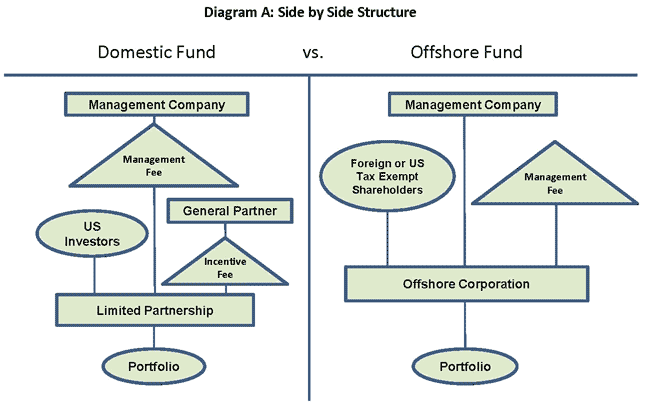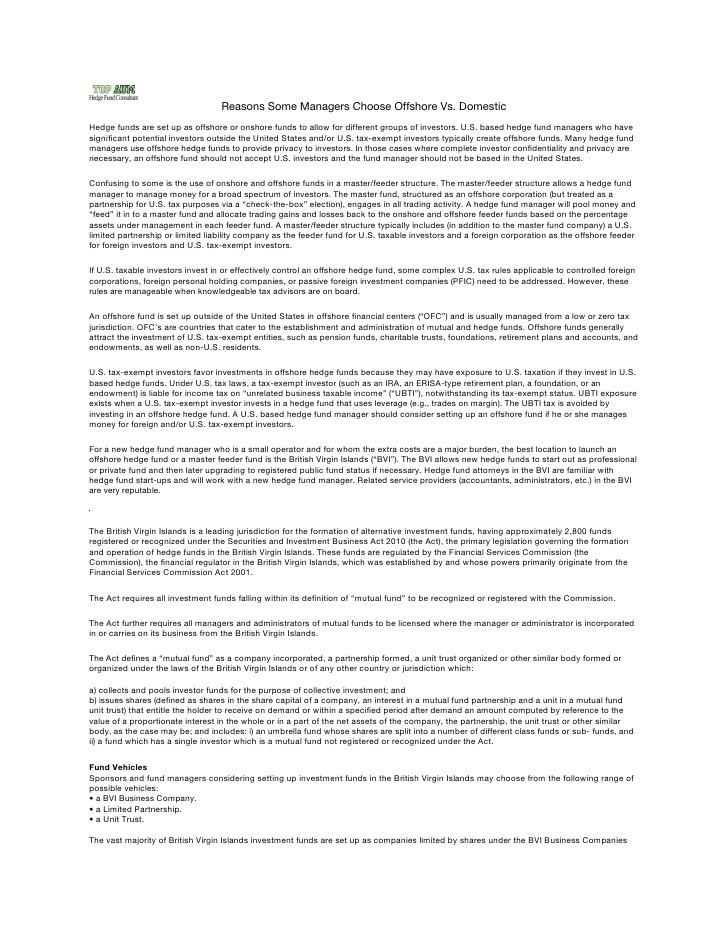Unrelated Business Taxable Income Investment Funds TaxExempt Investors and Offshore Companies
Post on: 16 Март, 2015 No Comment

Most U.S.-based investment funds (funds) are typically organized as limited partnerships or limited liability companies because of the tax efficiencies related to their flow through taxation. That is, unlike a corporation, which pays double taxation, there are no taxes paid at the business entity level and, instead, each individual limited partner or limited liability company member pays taxes only on their distributive share of their funds income and losses.
However, tax-exempt investors, including both individual retirement accounts, Keogh plans, and other entities subject to the prohibited transaction provision of Section 4975 of the Internal Revenue Code (IRC) (1986), as well as endowments, foundations, and pensions (collectively,
Tax-Exempt Investors), should be aware of the potential tax associated with an investment in a fund which purchases securities or other investments on margin or otherwise utilizes debt in its investment program (debt -financed investments), activities which are treated as generating
unrelated business taxable income (UBTI) under Section 514 of the IRC.
Due to the flow through nature of these funds, described above, Tax-Exempt Investors in funds which generate at least $1,000 per investor in annual interest, dividends, or capital gains from UBTI must pay tax with respect to any UBTI amount allocated to that Investor over $1,000 at the
tax rate that would apply but for the Tax-Exempt Investors tax-exempt status. Moreover, in some instances, UBTI may even cause the elimination of certain entities tax-exempt status.

The preferred way for Tax-Exempt Investors to invest in a particular U.S.-based fund and avoid earning UBTI is by purchasing interests in an offshore company or blocker, which in turn invests its assets into the U.S.-based fund. By investing through the blocker, the character of the income does not flow through to the Tax-Exempt Investor because of the non-flow through corporate structure of the offshore company. Thus the corporate structure of an offshore company serves to block the flow-through of any UBTI items to that investor, while the offshore jurisdiction, such as the British Virgin Islands or the Cayman Islands, typically demands little or no income tax on the corporate entity, unlike the hefty taxes paid by U.S. corporations. Therefore, whereas a TaxExempt Investor would face taxation for an investment in a U.S. fund, that same investor preserves their tax-exempt status by investing in a corporate entity located in a low-tax jurisdiction.
Why Does Congressional Inaction Translate Into Congressional Approval?
While it may seem like an artificial mechanism to avoid tax obligations, the practice of TaxExempt Investors avoiding UBTI by investing in offshore corporations is widespread and known to the US Congress, who has decided to remain inactive in applying UBTI to offshore corporations. One of the justifications for this laissez-faire approach is that the original UBTI rules, written in 1950 and expanded upon in 1969, were meant to apply to tax-exempt organizations, such as universities, which operate profitable businesses (such as a campus food court) which are unrelated to their core tax-exempt purpose (providing secondary education). In the preceding example, UBTI is necessary to level the playing field between the university, who would otherwise pay no tax, and the local pizza chain. This original purpose for UBTI legislation was never meant apply to Tax-Exempt Investors who are merely passively investing in onshore or offshore investment funds; therefore, Congress has sanctioned investments by Tax-Exempt Investors in offshore corporations utilizing debt -financed investments by their inaction.














